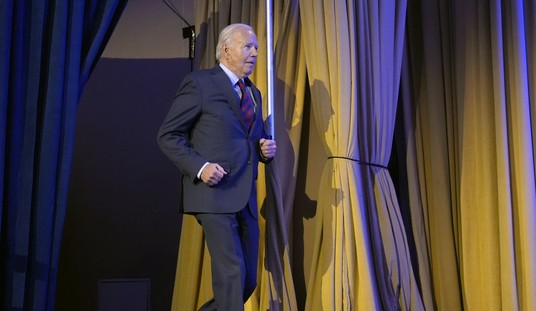Hopefully most readers have had a chance to see comedian Jay Leno's occasional foray into the streets, where he interviews young people, many of whom are in college. He asks the simplest of questions, such as "Who is our nation's founding father?" or "Who is the vice president of the United States?"

Often the interviewees stare into the camera and identify our nation's first president as "Abraham Lincoln," or the current vice president as "Clinton."
Increasingly -- disturbingly -- this kind of certifiable ignorance is worn as a badge of honor.
Now consider that it has been a longstanding tradition in America for conservatives, and in some cities liberals, to bemoan the content of their local newspapers. From the major "national papers," such as the New York Times and Washington Post, to the local community daily, newspapers have for generations been the focal point of allegations of bias in their reporting -- usually to the left of center.
Now the entire newspaper industry is holding on for dear life. A combination of increases in the cost of newsprint and the loss of reliable advertisers, such as car dealerships and real estate brokers, has left even the mightiest of papers in precarious shape.
The New York Times had to borrow against its own building for operating capital. Many major papers across the nation have shut down, most have had major layoffs, and others are converting to new formats or moving toward creating only a digital online version.
For everyone who has hated his or her local newspaper -- for whatever reason -- there is cause to think twice about rooting for its demise. We are rapidly moving into a situation in which what has become "short-attention-span theater" becomes "no attention span" among many Americans. If your are reading this, then you, by definition, are in the distinct minority of those who still are interested in world events.
Recommended
In the future, an increasing number of people, particularly young adults, might be exposed to even less of what is happening on the planet. After all, if they never pass a newspaper box with a headline, much less read a paper, how will they have the slightest clue about what's happening on the world stage?
"What about television news?" you might answer. Think again. There is a reason why every commercial that sponsors a network news broadcast is pushing some medicine to promote prostate health or prevent osteoporosis. The demographics for these programs skew older and older. The younger you are, the less likely you'll be to know who Charlie Gibson or Brian Williams is.
So, you might say, people get their news from radio and cable television talk shows. Some do, but as a percentage of the population, you could take everyone who watches programs on CNN, Fox News and MSNBC, add in everyone who listens to talk radio stations, and it still doesn't come close to the numbers needed to have an informed population.
OK, it's the Internet, right? Well, yes, in the sense that younger Americans are increasingly likely to turn to their laptops or hand-held devices for information. But how do they know the source is reliable? And since they have endless choices of where to go on the web to be entertained and enlightened, will they choose hard news sites? The news organizations would have you think so, but in reality, many of the people going to news sites on the Internet are the same news junkies who watch network or cable news, and who read papers.
So who or what should be blamed for this mess? Technology? Our educational system? The breakdown of the family unit?
Certainly all of this has contributed to what I believe will be a day not too many years down the line when the average citizen will have known so little about the issues of the day during their early years that they will be too darn dumb to understand or care once they are mature adults.
The truth is that America has come to honor ignorance. Increasingly, Americans would rather worship an American Idol or a Dancing Star than take the time to read a newspaper or watch a news program. Moreover, with instant messaging, TiVo, Twitter, Facebook, DVDs and so many highly segmented ways to find entertainment, the days of the structured "television broadcast" may be numbered -- and not by a matter of decades, but of years.
Those who want to dance a jig over the hard times that many a so-called "liberal rag" or conservative "tabloid" are encountering might think twice. A public that reads, listens and forms an opinion is a public that is our only protection from becoming the pawns of powerbrokers and potential dictators. A public that doesn't is simply ignorant.
To those who would wish to destroy our nation -- be it through extremism to the left or right or some other wacky direction -- ignorance is bliss.

























Join the conversation as a VIP Member